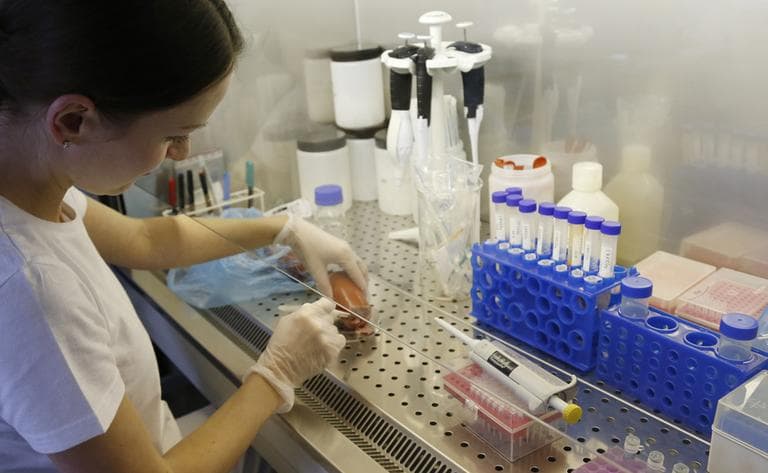Advertisement
No Horse Meat Found In U.S. But Food Fraud Does Happen
Resume
The horse meat scandal in Europe is spreading to Poland.
Polish authorities said Thursday that traces of horse meat DNA have been found in beef samples taken from three meat processors - the first acknowledgement that the country could be a source of the horse meat that fraudulently ended up in processed meat products sold as beef across Europe.
Horse meat has recently been found mixed into beef dishes sold across Europe, including in frozen supermarket meals. It has also been found in meals served at restaurants, schools and hospitals.
Authorities say it is a case of fraudulent labeling but does not pose a health risk.
The scandal has drawn attention to the complex and murky trade in meat, before it reaches the consumer.
Karen Everstine, a research fellow at the University of Minnesota's National Center for Food Protection and Defense writes: "Horse meat was a clever choice for addition to ground beef because, in addition to being less expensive, once meat is ground it is difficult to determine the species without DNA identification techniques."
Everstine says it's doubtful horse meat will find its way into American beef products, because we don't have horse slaughter houses in the U.S., and the meat we import hasn't been ground-up yet.
However, she says the “bulking up” of ground meat products with other meat products or vegetable filler is nothing new.
"A supplier to schools in 10 states in the U.S. was fined for putting up to 15 percent filler into ground beef," Everstine said.
- Does the horse meat scandal make you wonder what else might be in your food? Let us know on Facebook or in the comments below.
The National Center for Food Protection and Defense recently set up a database of all known cases of food fraud in the United States, dating back to 1980. The worst offenders are in the fish and seafood category.
Everstine says just like it's hard to tell the difference between horse meat and ground beef, once you put a fillet on a plate in a restaurant, it's hard to distinguish between one fish and another.
Food fraud is usually committed to make money, by substituting a cheaper product for the one being sold, and it normally doesn't pose a health risk.
But Everstine says more needs to be done to monitor our food supply to prevent more nefarious infiltration, for example by terrorists.
Guest:
- Karen Everstine, research fellow at the University of Minnesota's National Center for Food Protection and Defense.
This segment aired on February 28, 2013.